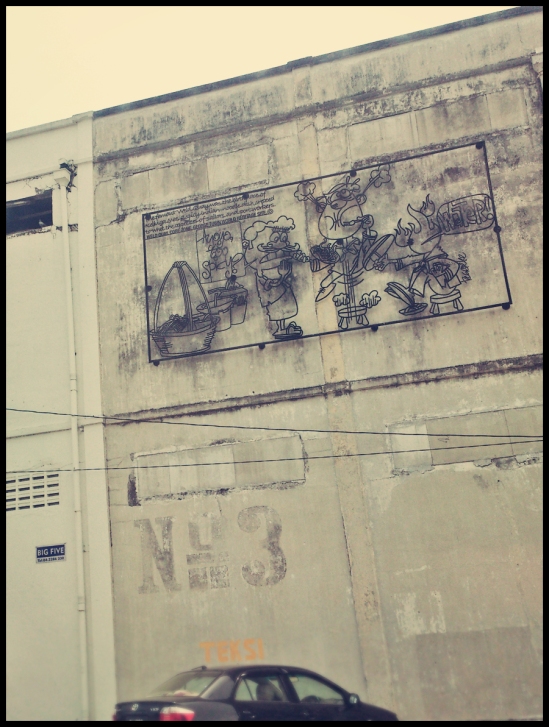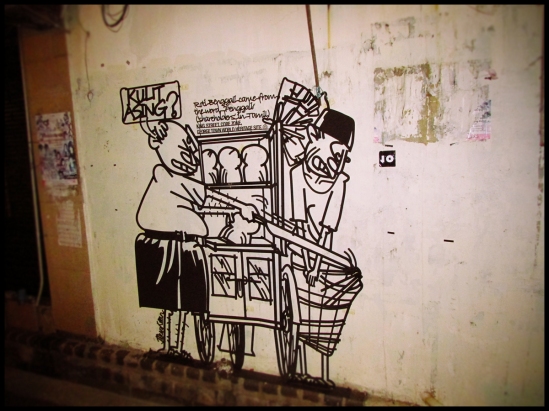Category: Steel Rod Wall Sculpture Art
Penang Street Art (Lorong Muda Sculpture)

Lorong Muda is a small lane off Stewart Lane and the area is popular for traditional joss sticks maker as depicted in this steel rod wall sculpture.
Penang Street Art (Sungai Ujong Road)
This steel sculpture found at Sungai Ujong Road depicts barbers who once set up their business along the Prangin Canal back in the old days of Penang. Hairs which were cut were apparently thrown by the barber shops into the canal during that time. Sungai Ujong Road also marks the end point of the former Prangin River. Sungai Ujong Road serves as the connection between Prangin Road and Kimberley Street.
Penang Street Art (A Game of Sparrows)
A steel rod sculpture depicting the favorite pastime of most older generation of the local Chinese communities here in Penang – the game of Mahjong. Mahjong literally means sparrow in Chinese, and is usually played with four persons. Legend has it that it was Confucious who invented the game, though this was pretty much debatable. A set of 144 Mah Jong tiles consists of 36 tiles in the Bamboo suit, 36 in the Circle suit, 36 in the Character suit, 16 Wind tiles, 12 Dragon tiles and 8 bonus tiles (4 Flowers and 4 Seasons). The objective of the game is to collect sets of tiles according to the number and type shown on the face of each tile. This sculpture can be found towards the end of Stewart Lane, behind the Goddess of Mercy temple.
Steel Art Sculptures at the Municipal Park
Penang Street Art (Weld Quay Indian Noodles)

A steel rod art sculpture installed at the top side of a warehouse at the Penang Swettenham Pier, Weld Quay area. The caricature revealed that Weld Quay is the birthplace of the Indian spicy noodles when back in the old times, it was a local favorite meal for the sailors and port workers.
Penang Street Art (The Bread Seller)

This steel sculpture can be found on a wall of a shophouse along King Street, part of the Little India area in George Town. The caricature depicts a local ‘Roti Benggali’ (or Benggali Bread) seller and what it means by the word ‘Benggali’. The freshly baked and rather big loaf Benggali bread is popular among the locals here, usually sold from a small makeshift stall on a motorcycle. It was said that the bread derived its name from the word ‘Penggali’, which basically means ‘shareholders’ in Tamil. The bread business was started by an Indian Muslim together with his group of friends (a co-op business) back in the 1930s. Local residents later mistook the name to be ‘Roti Benggali’ and the bread has been called as such ever since.
Penang Street Art (Queen Street Goldsmith)
Penang Street Art (Chulia Lane Trishaw Sculpture)
Penang Street Art (The Little Sparrows)

Steel wall caricature featuring little sparrows flying from a window at a wall of an old building at Stewart Lane in George Town.








